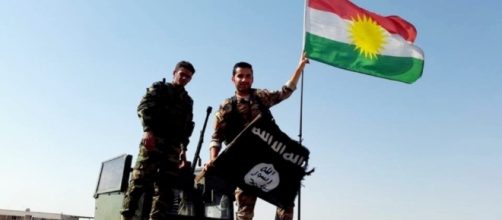The Kurdish-led Syrian Democratic Forces or SDF had halted its advance through ISIS territory outside Raqqa due to poor U.S. Air Support. Though the offensive in Raqqa was gaining pace, the advance on other fronts grounded to halt. SDF officials blame the almost lack of support coming from the United States Air Force and ill-coordinated air strikes on key ISIS installations in Raqqa and the rest of ISIS-held territories.
Why is the United States Air Force not helping the SDF?
According to Syrian observers, the U.S. Air Force is not providing ample support on any offensive made by the SDF.
This puzzled many of the Kurdish troops who believed that the United States is to support their cause and will help them achieve freedom from ISIS.
SDF officers claim that airstrikes conducted by the United States didn't accurately hit ISIS installations and key positions. They also alleged that the air strikes are causing more civilian deaths than destroying ISIS locations. They are also claiming that the whole ISIS offensive maybe in jeopardy mainly due to the lack of effectiveness of U.S. air strikes in the Raqqa front. These claims of air strike inefficiency was investigated by the United Nations and a report was issued that U.S. air strikes caused more civilian deaths than ISIS casualties.
What is the reaction of the United States Military?
According to U.S. Defense Secretary James Mattis, the support provided by the United States is invaluable for the progress of the military offensive conducted by the SDF. The Pentagon added that U.S. operations in Syria is focused mainly on defeating ISIS and protecting American interests and allies in the country.
This meant that the United States will not help the SDF carve up another country in Syria or support any kind of government overthrow even if the government concerned is Assad's regime.
U.S. President Donald Trump have stated his policy in the Middle East and that is to defeat ISIS and to limit the influence and power of Iran.
This is made possible by creating a coalition of Arab nations that will fight terrorism in their borders and also provide diplomatic pressure on Iran and those who support it.
Trump also provided incentives for countries like Saudi Arabia and the UAE to support his policy and join him in his war against ISIS and Iran. The only problem for the United States is Russia and its apparent tacit agreement with Iran to oppose American influence.


